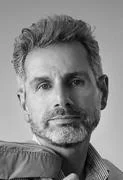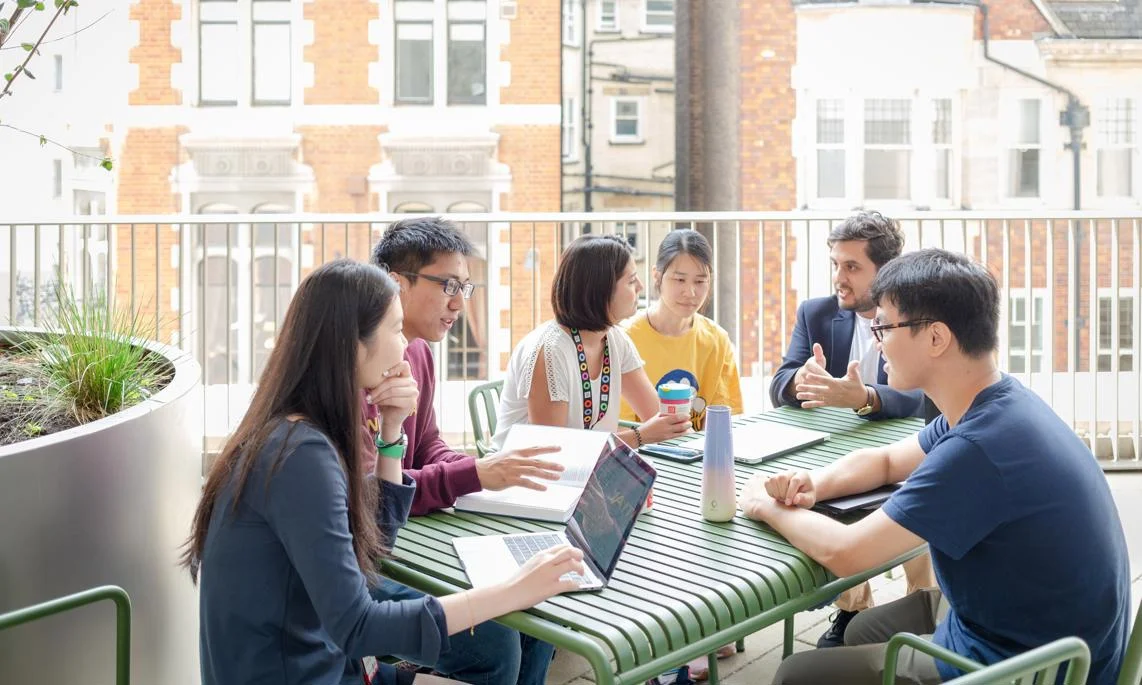Overview
Introduction
This degree is distinctive for its international perspective on the past. Spanning the 15th century to the present day, the programme pays as much attention to political, economic, social and cultural developments that have shaped states as to the relationships between them.
You can choose from a wide range of history courses covering virtually every region of the world and period in history. The Department of International History is world-leading for research and teaching. Taught by internationally acclaimed academics, you’ll develop your analytical powers, analyse complex evidence from a variety of sources and learn how to present your findings clearly – all highly transferable skills that are valued by employers.
You can also take options from other departments, including a language specialism – see the Programme Structure and Courses section for details.
LSE history graduates continue to have one of the best rates of employability and earnings after graduation in the UK. Our graduates secure rewarding and challenging careers in politics, journalism, the media consulting, law, research and teaching.
Preliminary readings
If you wish to gain further insight into the subject we suggest that you look at one or more of the following books:
- M Abbott History Skills (Routledge, 1996)
- Best et al An International History of the Twentieth Century and Beyond (Routledge, 2014)
- D Cannadine What is History Now? (Palgrave, 2002)
- R Evans In Defence of History (Granta, 1997)
- D Reynolds One World Divisible (Norton, 2000)
- D Stevenson 1914-1918: The history of the First World War (Allen Lane, 2004)
- O A Westad The Global Cold War: Third World interventions and the making of our times (Cambridge University Press, 2007)
Entry requirements
Here, you can check our entry requirements for GCSEs, A-levels (please read them alongside our information about subject combinations) and the International Baccalaureate (IB) Diploma. We also consider applications from students with a range of other UK qualifications and from overseas. Please select the overseas button below and choose your country from the dropdown list to find the equivalency to A-levels of your qualification.
We welcome students from all walks of life at LSE. We want to recruit students with the very best academic merit, potential and motivation. So, whatever your background, please do apply. Get all the details on our general entry requirements.
Competition for places at LSE is high. We cannot guarantee you an offer of a place even if you’re predicted or achieve our standard entry requirements.
Our standard offer requirements are intended only as a guide and, in some cases, you’ll be asked for different grades.
Programme content
On this programme, you’ll study 12 units over three years, plus LSE100.
Year 1
You’ll take two compulsory courses and two course options (chosen from three history courses), one international relations course, language courses and options from other departments.
Additionally, you’ll take LSE100.
Year 2
In your second year, you can choose from a range of history courses and an option from another department.
Courses to the value of four units
Year 3
In your final year, you’ll take three history options or two history options plus an option from outside the department. You’ll also research and write a 10,000-word dissertation on a topic of your choice.
Courses to the value of three units
Why study with us
Discover more about our students and department.
Meet the department
History is a wide ranging and challenging subject to study. It seeks to understand the past and to make sense of the present, adding an important dimension to the understanding of many aspects of human society. The department is world renowned in its field, offering a unique perspective on the history of relations between states, peoples and cultures. We pride ourselves on giving students the benefit of ground-breaking research throughout our teaching programmes.
Our degrees will give you a broad international perspective on the past. We give attention both to domestic and international issues and many of the courses we offer deal with major events in the history of international relations.
Since the behaviour of countries in the international arena cannot be understood without a knowledge of their distinct social, political, economic and cultural characteristics, we provide courses covering major aspects of the history of ideas and mentalities.
LSE was founded in 1895 originally as an institute of higher education for graduate students. The department reflects this tradition and takes its responsibility for undergraduate teaching and supervision very seriously. We admit nearly as many undergraduate students as master's students. We have one of the most cosmopolitan undergraduate communities in London and one of the most vibrant and dynamic.
Learn more about our programmes, research, public events and people.
Who's who

Why LSE
University of the Year 2025 and 1st in the UK in 2025 and 2026
Times and The Sunday Times - Good University Guide 2025 and 20261st in London for the 14th year running
The Complete University Guide - University League Tables 20266th in the world for the study of social sciences and management
QS World University Rankings by Subject 20256th in the world for leading the way in social and environmental sustainability
QS World University Rankings: Sustainability 2026Your application
Overview
We consider each application carefully, taking into account all the details you’ve included on your UCAS form, such as:
- academic achievement, including predicted and achieved grades (also see specific information about this programme in the "entry requirements" above)
- subjects and subject combinations (also see specific information about this programme in the "entry requirements" above)
- your personal statement (new guidance for students applying for 2026/27)
- your teacher’s reference
- educational circumstances
You may also have to provide evidence of your English proficiency, although this is not needed at the application stage. See our English language requirements page.
Who attends
We’re looking for students who demonstrate:
- a genuine interest in international history
- a willingness to read extensively
- an ability to evaluate and challenge conventional views
- good communication skills
- initiative and enthusiasm
- attention to detail
- intellectual curiosity
- self-motivation and a willingness to work hard.
Fees and funding
The table of fees shows the latest tuition fees for all programmes.
You're charged a fee for each year of your programme. Your tuition fee covers registration and examination fees payable to the School, lectures, classes and individual supervision, lectures given at other colleges under intercollegiate arrangements and, under current arrangements, membership of the Students' Union. It doesn't cover living costs or travel or fieldwork.
Home
Home student fee per each year of your programme
This is the 2026/27 tuition fee for Home students. The Home undergraduate fee is charged in line with the maximum fee determined by the UK Government and may increase in subsequent years, in line with government plans.
Overseas
Overseas student fee per each year of your programme
This is the 2026/27 fee for each year of your programme. The Overseas tuition fee will remain at the same amount for each subsequent year of your full-time study regardless of the length of your programme. This information applies to new Overseas undergraduate entrants starting their studies from 2026/27 onwards.
Learning and assessment
How you learn
How you're assessed
Formative unassessed coursework
All taught courses are required to include formative coursework which is unassessed. It is designed to help prepare you for summative assessment which counts towards the course mark and to the degree award. LSE uses a range of formative assessment, such as essays, problem sets, case studies, reports, quizzes, mock exams and many others. Feedback on coursework is an essential part of the teaching and learning experience at the School. Class teachers must mark formative coursework and return it with feedback to you normally within two weeks of submission (when the work is submitted on time).
Summative assessment (assessment that counts towards your final course mark and degree award)
Some courses will be assessed by written assessment and many contain elements of continuous summative assessment. Please note that assessment on individual courses can change year to year.
You will also receive feedback on any summative coursework you are required to submit as part of the assessment for individual courses (except on the final version of submitted dissertations). You will normally receive this feedback before the examination period.
An indication of the current formative coursework and summative assessment for each course can be found in the relevant course guide.
Graduate destinations
Overview
Through studying history you'll learn how to analyse complex evidence from a variety of sources, to develop your analytical powers and to present your findings effectively. These skills and a broad knowledge of the development of the world around us are valued by many employers.
Past students have followed a range of careers in politics, journalism, media and publishing, advertising, marketing, and public relations, public administration, the foreign service, industry, the charity and development sector, finance, consulting and the legal profession, as well as in research, teaching, libraries and archives.
Further information on graduate destinations for this programme
Top 5 sectors our students work in:
Career support
We're committed to supporting students' options after graduation in the world of work or futher studies by organising a careers programme tailored specifically to International History students with the help of LSE Careers. Also, many leading organisations give careers presentations at the School during the year, and LSE Careers has a wide range of resources available to assist students in their job search.
Find out more about the support available to students through LSE Careers.
Discover Uni
Every undergraduate programme of more than one year duration will have Discover Uni data. The data allows you to compare information about individual programmes at different higher education institutions.
Programmes offered by different institutions with similar names can vary quite significantly. We recommend researching the programmes you're interested in and taking into account the programme structure, teaching and assessment methods, and support services available.
